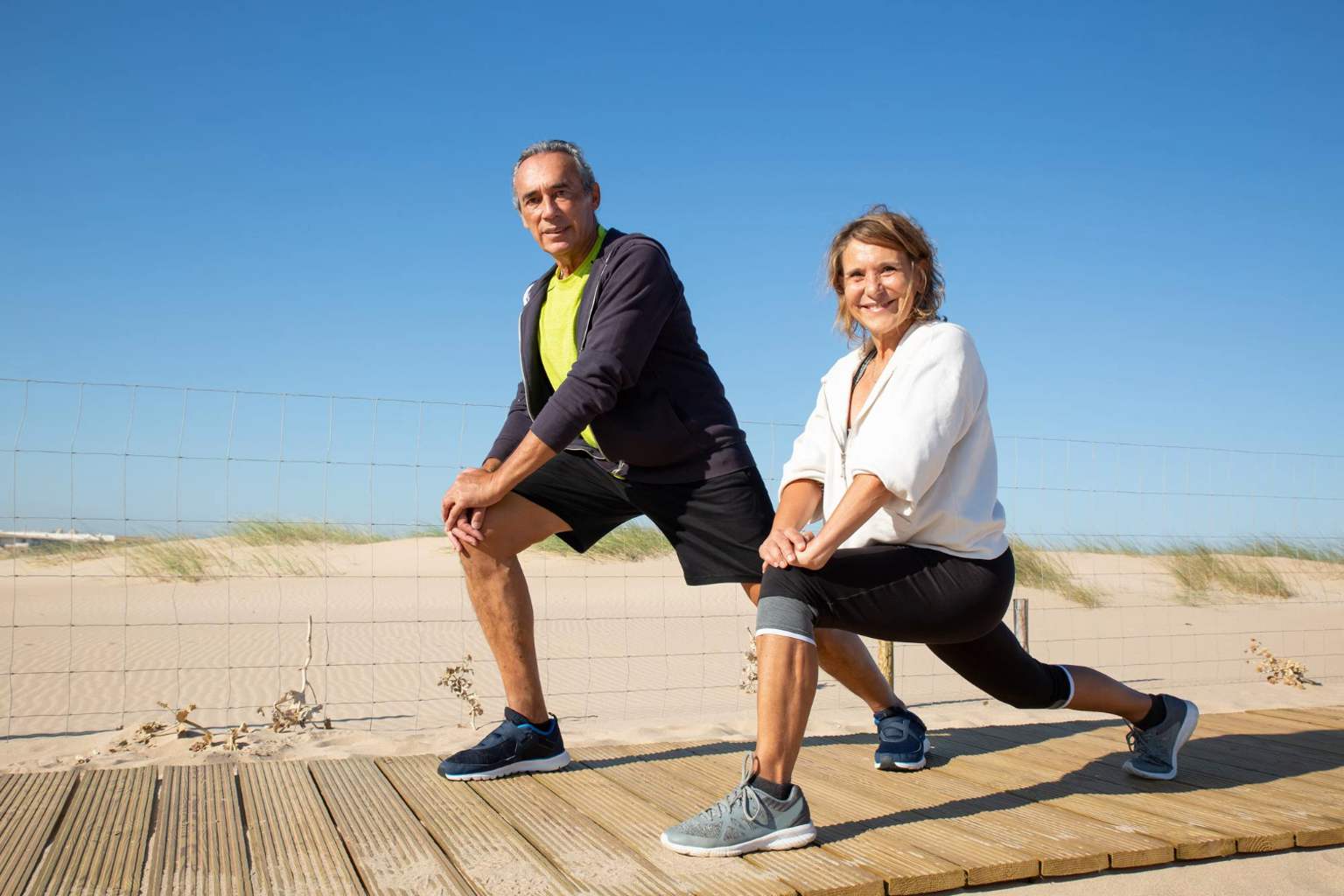If you’re over 65 and looking to boost your leg strength, you might think of common exercises like glute bridges or step-ups. But what if the most effective move is something simpler, more classic, and doesn’t require any equipment? That’s right—squats can be your secret weapon. Not only do they work your quadriceps, hamstrings, glutes, and core, but they also help improve your balance and mobility, crucial for staying active and preventing falls.
Let’s explore why squats stand out as the best option for leg strength in older adults, how to do them safely, and ways to adapt the exercise to your unique fitness level.
Why squats are the best exercise for leg strength in seniors
Squats are a powerful full-body exercise that particularly focuses on your legs. For those of us in the 65-plus club, building leg strength is about more than just muscle tone—it’s about maintaining independence and confidence. Strong legs improve balance and coordination, which significantly reduces the risk of dangerous falls. Plus, the controlled pressure squats impose on bones can help increase bone density, a key factor in fighting osteoporosis, a common concern as we age.
What I love about squats is that they require no fancy gear or gym memberships. You can do them anywhere—your living room, the park, or even leaning against a wall for support if balance is tricky. Squats target the muscles you rely on every day for walking, climbing stairs, and standing tall with good posture. Studies also show that regular squatting can ease joint pain, especially around the knees and hips, by strengthening the muscles supporting those joints.
How to do squats safely and effectively after 65
Natural tips to lighten your hair this summer without harsh chemicals
Getting the most from squats means focusing on proper form to avoid injuries like knee or back strain. Many beginners worry about hurting themselves, but with the right guidance, squats can be both safe and enjoyable.
Start by standing with your feet about shoulder-width apart. Keep your back straight, chest lifted, and your weight distributed mostly on your heels—not your toes. Begin lowering your body as if you’re sitting down into a chair, stopping when your thighs are roughly parallel to the floor or less if that feels better. Make sure your knees don’t push out past your toes.
If balancing is a concern, don’t hesitate to use a sturdy chair or hold onto a kitchen counter while you practice. You can also try wall squats—sliding your back down a wall as you lower yourself—to build strength without losing stability. Begin with shallow squats and slowly increase depth as your leg strength and confidence grow.
Here’s a quick safety tip I learned from personal experience: listen to your body. It’s tempting to push yourself hard at first, but gentle progression leads to steady gains without setbacks.
Modifications and tips to incorporate squats into your routine
Should you refrigerate olive oil? How to store cooking oils the right way
Squats are remarkably adaptable. Whether you’re just getting started or have been active for years, modifications make this exercise accessible.
For those with limited mobility or joint concerns, try chair squats. Sit down fully, then stand up slowly using your leg muscles, keeping your hands lightly on the armrests for support if needed. This version still works your legs but reduces strain.
If you feel comfortable, add some variety by holding light weights like water bottles or soup cans while squatting, which builds extra strength.
I remember my own journey with squats—it took patience and consistency. At first, just 5 repetitions felt challenging, but keeping at it every other day gradually brought me increased energy and steadier balance. Knowing that I’m strengthening my foundation to keep enjoying walks with my grandchildren keeps me motivated.
Remember, squats also help with everyday activities such as gardening, grocery shopping, or getting up from a chair without assistance. The benefits ripple through all parts of life.
What’s your experience with squats or leg exercises? Have you noticed any changes in balance or strength? Share your thoughts—I’d love to hear your stories and tips. If you found this helpful, please pass it on to friends or family members who might benefit from stronger legs at any age.

Thanks I needed this
I never stop using Nivea I been using it since I was 16 years old. And I am now nearly 65 still use it my skin is clear and no wrinkles I look 40 not 65.thank you Nivea. 💚👌🌹♥️